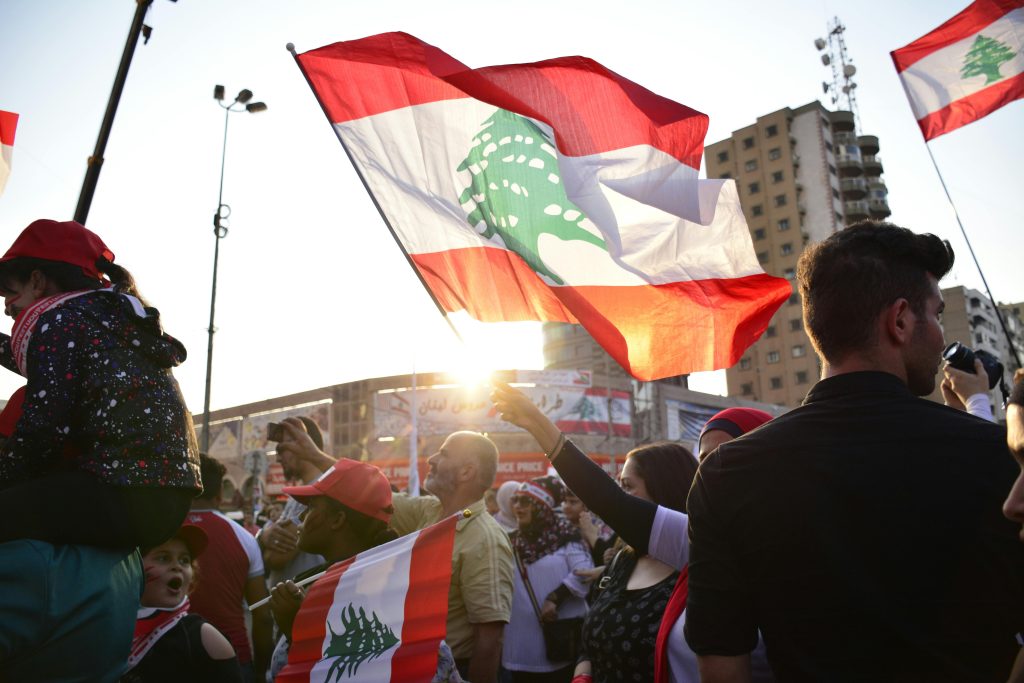The Istanbul Convention Opens Israel to Radical Social Changes Imposed by the Courts, and Permanent Condemnation by an International Body
May 2022
The Government of Israel has announced its intention to join the Istanbul Convention on Violence Against Women. The problematic asylum provisions of the Convention have already been highlighted. But numerous other provisions are problematic in ways that affect every aspect of Israeli society.
Violence against women (VWA) in all its forms is an extremely serious problem. But many of the provisions of the Convention simply do nothing to address it, instead of focusing on unrelated general social issues. The adoption of the Convention does not give Israel any additional tools to crack down on such violence. Those seeking to fight VAW should promote tough new domestic legislation dealing with the problem directly.
While this treaty creates a variety of risks in the form of Bagatz activism and review by hostile external commissions, there is no upside to joining this treaty.
i. No domestic benefits. There are no measures against VWA that cannot be taken directly by national legislation. People who are really serious about fighting VWA should push in the Knesset for stronger penalties for such crimes, and seek to also crack down on perennial related problems like Bedouin polygamy.
ii. No international benefits, only international harm. Some might think that joining this treaty would help our international standing. Not only is that not true – it would create a vehicle for our permanent demonization. There is often pressure to join certain United Nations human rights treaties because they are global in scope – pretty much every country joins it. The Istanbul Convention is a treaty of the Council of Europe (CoE), and Israel’s non-participation would not be remarkable.
Unlike the U.N. Convention on the Elimination of all Forms of Discrimination Against Women (CEDAW), which almost every country on Earth has signed, the Istanbul Convention is so unusual in its micromanagement of domestic systems, and so extreme in its promotion of progressive social values, that even many CoE member states like the United Kingdom and Czech Republic have not joined it. Israel would be the only non-CoE country to join, with other non-CoE countries like Canada having rejected it.
However, the treaty establishes a monitoring mechanism, the Group of Experts (GRIEVO), which is empowered to conduct country visits, receive reports from NGOs, and issue periodical reports on the conduct of state parties. Based on Israel’s experience with similar bodies in other international organizations, GRIEVO will be barraged with anti-Israel complaints masquerading as women’s rights claims. Like other “human rights” bodies, it will turn out reports condemning Israel for its treatment of the Palestinians, any vestige of “gendered” religious practice.[1] Thus whatever brief international praise Israel gets for joining will be overshadowed by the routine condemnations.
To be clear, this is not a hypothetical concern. The U.N. currently employs “experts” on violence against women to make reports on various countries. Their reports on Israel are extended denunciations of the Israel’s policy in the territories.[2]
Israel faces two fundamentally different set of considerations from the countries who have joined. Israel is unique in the broad powers the Supreme Court has asserted for itself. In other countries, singing the treaty would not provide a basis for judicial review of every aspect of social issues relation to gender issues, trans rights, etc. – in Israel it surely would. Second, Israel is unique in being the subject of a massive campaign by pro-Palestinian NGOs to hijack international fora to use against it. The European “monitoring mechanism” for the Convention would surely become nothing but an arena where Palestinian extremist claims are dressed up as women’s rights claims. Instead of being applauded for its membership in the treaty, the annual review process would be a venue for permanent condemnation of Israel.
Finally, CEDAW and other women’s instruments, the Convention itself bars any reservations that would suspend the effect of the problematic provisions or only adopt those genuinely related to violence against women. It is an all-or-nothing proposition. The Justice Ministry has said that the Government intends to make interpretive declarations relating to certain objectionable asylum provisions (Art. 60 & 61). But such declarations have absolutely no legal force under Art. 78, and are indeed violations of the Convention. It is hardly a good sign that Israel has to violate the treaty to join it. The same is true of all the specific provisions discussed below.
Examples of the Convention’s problematic non-asylum provisions[3]
Art. 3(c) opens the door for judicial recognition of “non-binary” genders by defining “gender” as not being biological, but rather being “socially constructed roles, behaviours, activities and attributes.” This particular provision has actually led some European countries to not join the treaty. While the Council of Europe claims it is not intended to undermine the biological notion of gender, it could certainly be used by an activist court to do so.
Art. 4(2) requires putting provisions of gender “equality” in national constitutions and laws. The question of “equality” guarantees – which would give Bagatz huge powers to make discretionary determinations in a wide variety of areas – has long been controversial. This brings it in through the back door. Moreover, Art. 4(2) bans all forms of “discrimination.” Israel filed a reservation against a similar provision in CEDAW because it can conflict with “laws of person status” in religious communities. No such reservation is allowed here.
Art. 9 requires Israel to “support and recognize… non-governmental organisations and of civil society active in combating violence against women and establish effective co-operation with these organisations.” Needless to say, radical anti-Israel NGOs funded by European governments will describe themselves as combatting violence against Palestinian women and will use this provision to demand government recognition. Such claims will likely win sympathy with the GRIEVO experts. This is not hypothetical. The current U.N. Special Rapporteurs on violence against women as well as rapporteur on discrimination against women last month joined a denunciation of Israel for classifying six Palestinian NGOs as terror groups.[4]
Art 12(1) – “Parties shall take the necessary measures to promote changes in the social and cultural patterns of behaviour of women and men with a view to eradicating …customs, traditions and all other practices which are based on the idea of the inferiority of women or on stereotyped roles for women and men.”
This is unlike any other known treaty provision, requiring parties to actually change their countries “culture” and “customs.” This would be a basis for challenging a wide variety of practices in Israel entirely unrelated to VAW, such as maternal lineage for Judaism; religious girls’ exemptions from army service; restrictions on women in combat; and even separate prayer at the Kotel. The vast reach of this provision poses so many risks they are hard to list or enumerate, but it is a Trojan horse into the most sensitive and distinctive issues in Israeli society.
Unlike CEDAW, to which Israel made numerous reservations to preserve the status quo in religious matters,[5] no such exceptions are allowed in the Istanbul Convention, despite – or because – its interference in matters of personal status and religion is far greater. Indeed, this could have the practice effect of overriding Israel’s reservations to such earlier treaties.
Art 40 – requires parties to penalize “sexual harassment,” using a definition that goes far beyond current law by defining it as “unwanted verbal, non-verbal or physical conduct of a sexual nature with the purpose or effect of violating the dignity of a person.” The definition is not limited to workplace harassment, and in its vagueness, threatens free speech and is generally vague and open-ended and beyond current Israeli law.
[1] See, for example, Report of the Special Rapporteur on violence against women, its causes and consequences on her mission to Israel, A?HRC/35/30/Ad.1 (2016) (The Special Rapporteur renews the call on the Government to end the occupation and conflict and to promptly address its gendered impact.”); Report of the Special Rapporteur on violence against women, its causes and consequences, on her mission to the Occupied Palestinian Territory/State of Palestine, A/HRC/35/30, Ad. 2 (2017) https://www.ohchr.org/en/HRBodies/HRC/RegularSessions/Session35/Documents/A_HRC_35_30_Add_2_EN.docx (blaming “the occupation” for the “subordination” of Palestinian women and their exclusion from public life; women’s unemployment; child marriage; among other Palestinian social ills).
[2] As one such UN expert said after an inspection visit to Israel, “the prolonged occupation has had a differentiated impact on women and girls, and noted that house demolitions, either in the context of lack of building permits or on punitive grounds and forced evictions have a specific impact on women.” https://refugeesmigrants.un.org/zh/node/100042398
[3] Bolded font in various provisions cited has been added for emphases.
[4] https://www.ohchr.org/en/press-releases/2022/04/israelpalestine-un-experts-call-governments-resume-funding-six-palestinian
[5] https://treaties.un.org/Pages/ViewDetails.aspx?src=TREATY&mtdsg_no=IV-8&chapter=4&clang=_en#30



